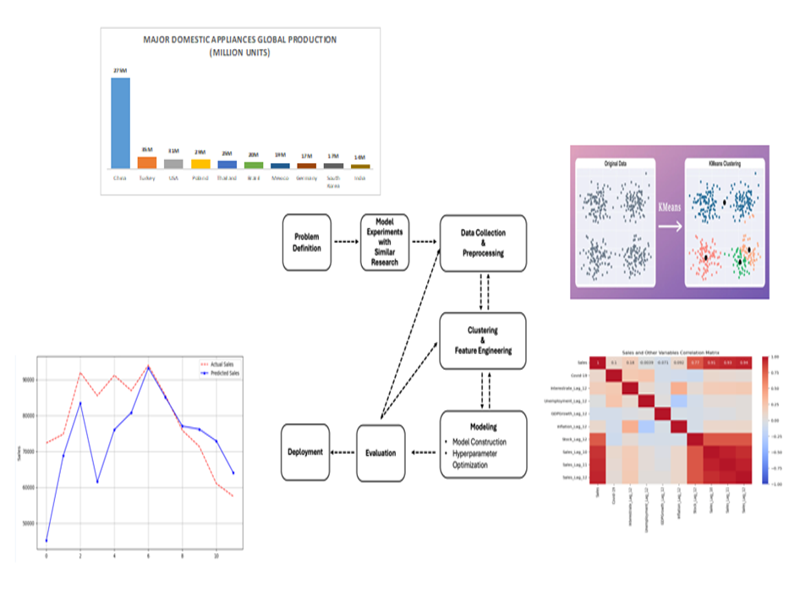M.S. Candidate: Cansu Demir Kartbol
Program: Data Informatics
Date: 26.05.2025 / 10:30
Place: B-116
Abstract: Economic changes, global cases, technological advancements, market competition, and the nature of product demand increase demand variability. From a supply chain management perspective, developing a method that can effectively forecast this fluctuating demand is crucial for increasing profitability and optimizing inventory management. In this thesis, real-world data from a home appliance company is utilized to improve forecasting accuracy for cooling and freezer products, aiming to optimize supply chain strategies. A data-driven approach is adopted by utilizing various forecasting models such as SARIMA, LSTM, and Prophet. Additionally, external factors such as the impact of COVID-19, economic indicators, and inventory levels are considered. Model performance is improved through hyperparameter optimization and evaluated using metrics such as MAE, RMSE, and SMAPE. The study aims to enhance demand forecasting accuracy and optimize supply chain strategies by exploring various clustering techniques to refine product and country groupings. The models are applied to both product-level and product-region-level datasets. The best result for product-level forecasting is obtained using the Prophet model without exogenous variables, which exceeds the base model by 11%. For product-region-level forecasting, the SARIMA model using exogenous variables achieves the best performance, exceeding the base model by 24%. Furthermore, for both breakdowns (product; product-region), the evaluation results indicate that clustering products and countries with similar sales dynamics enhances forecasting performance. Consequently, this thesis contributes to the literature by focusing on the underexplored home appliance sector, particularly refrigerators and freezers, and providing actionable forecasting approaches for supply chain optimization.
